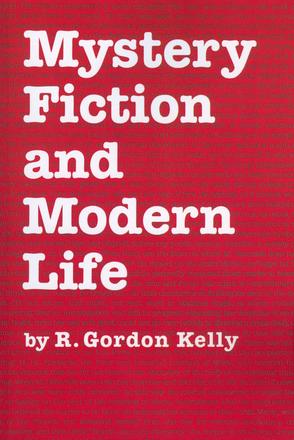
Mystery Fiction and Modern Life
Description
The detective novel is both a product of the twentieth century and a response to the needs of readers forced to deal with social and political insecurities of the time. Thus codes of modernity are the essence of the genre, and its plausibility relies upon the degree of the readers' expectations, demands, and vicarious experiences. Even one of mystery fiction's hallmarks, the seemingly improbable but consequential encounter with strangers, is assimilated in the modern sensibility, which has been shaped by concepts of trust and confidence, of rationalism and emotion, of expertise and amateurism, and of ideology and morality.
This intelligent and probing analysis of the detective novel shows how the fictional world portrayed by the mystery writer is perceived as parallel with the actual world. This apparent unity of the fictional thriller and veritable circumstance would make it possible for some high-ranking diplomat to outwit his adversaries by emulating the exploits of Sherlock Holmes. Similarly, a professor of medicine might assign students the study of Arthur Conan Doyle's stories as exercises in detection or in drawing inferences, for like the work of Holmes the practice of medicine connects visible symptoms to their invisible causes.
In the light of this concept of modernity Mystery Fiction and Modern Life examines works by Doyle, Edgar Allan Poe, John Buchan, Eric Ambler, Dashiell Hammett, Ross Macdonald, Tony Hillerman, Agatha Christie, Helen MacInnes, Patricia Cornwell, Marcia Muller, Sara Paretsky, Anthony Price, and others.